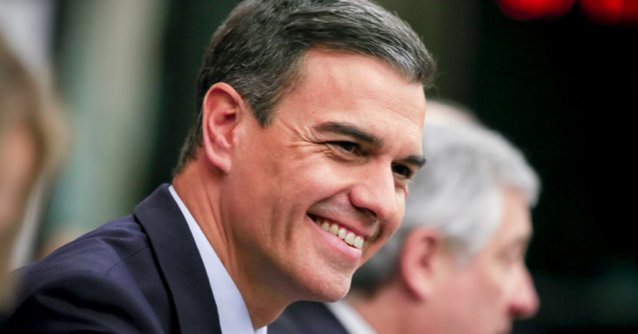General Elections in Spain: Episode IV
At the same time as the Romanians elect a new president, the Spaniards are being called to return to the ballot box to elect 350 deputies and a portion of their senators, the other portion being elected by Spain’s various regional governments. And this is the fourth time in four years. December 2015, June 2016, April 2019, November 2019. With Spain mired in so much political instability, the ballot boxes haven’t gathered a single speck of dust stored away in the country’s mayoral cupboards.
The saga began in 2015. The Popular Party (PP) of the incumbent Prime Minister, Mariano Rajoy, took a parting shot from the electorate which brought its representation down from 44% to 28%. The Socialist Party (PSOE) hardly fared any better, and won no more than 22% of the votes. For the first time, the left-wing Podemos (“We Can”, UP) and liberal Citizens (Cx) parties made significant gains in the Cortes Generales (General Courts, Spain’s bicameral parliament).
But since Messrs. Rajoy and Sánchez (of the PSOE) were incapable of forming a governing coalition, another round of elections had to be called in June 2016. With more than a third of the country’s voters in favour, the PP proposed a grand coalition with the Socialists that was then refused. In the end, it was only the passive support of the Citizens and Socialist Parties that gave Rajoy his victory. This delicate situation finally exploded on June 1st, 2018, when Sánchez passed a vote of no confidence, following the news of a massive financial scandal involving Rajoy’s party.
Due to this, the Socialists got back into power, with a minority government in need of a coalition. Thus, when the Cortes rejected their 2019 budget plan, the path was paved to yet another election being called in April 2019.
This time round, the Socialists managed to scrape together 6% more of the votes and 123 more deputies than before, whilst the right tumbled down to 16.7%, losing 71 deputies and 71 senators in the process. For the first time in 11 years, the PSOE outstripped the PP, while Podemos and Citizens obtained 42 and 57 votes, respectively. In another shock, the extreme right entered Spain’s legislature for the first time since the end of the Franco dictatorship, with the Vox party winning 10% of the overall votes. The relative position of each party was further confirmed the following May during the European elections.
Before the April election, Sánchez clearly preferred the idea of a minority government to a coalition. This being said, he hadn’t counted on the obstinacy of Pablo Iglesias, the leader of Podemos. In fact, Iglesias not only demanded a coalition, but several key ministerial posts as well. Yet after a long and brutal back-and-forth—ranging from everything from Iglesias’s demands to their differences regarding the “Catalan question”—no conclusive agreement could be reached.
Another complicating factor was the “unholy” alliance between the PP, Citizens, and Vox that had recently formed in Andalusia. Andalusia had been a stronghold of the Socialists since its independence in 1981, and so the right attempted to leverage Vox’s electoral gains in the hope of toppling them. In the wake of these events, Sánchez sought to completely exclude the centre-right from coalition negotiations. But this temporary Prime Minister’s decision resulted in yet another failure to form a government. Spain’s legislature was dissolved on September 23rd, and another election was scheduled.
Because of the complex situation facing the Socialists, a new coalition called Más País (“More Country”, MP) was cobbled together by several center-left and environmental parties. They were joined as well by a number of left-wing Valencian nationalists that had broken away from Podemos. This strategy could be interpreted as an attempt to shear away votes from Podemos and Citizens, and make MP more attractive as a potential partner for the PSOE.
No end in sight…
It has not entirely worked. Though the Socialists have seemingly [come out on top-<https://www.franceculture.fr/emissi...]> https://www.lindependant.fr/2019/10/05/espagne-ciudadanos-pret-a-sallier-aux-socialistes-apres-les-elections,8460802.php] (either that, or they have rebuked him for his alliance with Vox). The MP coalition, for its part, got 3 deputies, and the rest of the seats have been split up between the various autonomist and independentist parties.
Given all this, the election will hardly bring the stability so hoped for by the Spanish electorate. Even in the case of an alliance between the left and the centre right, the PSOE could only garner 159 of the 176 seats required for an absolute majority. And a right-wing alliance à la Andalousie would only count 150 seats at best. Everything boils down to the independentists, then—who still only elected a total of 21 deputies from the left and the right. Although courting Catalan nationalists might give him the slim advantage he needs, Sánchez will still not have much manoeuvering room.
Naturally, this kind of prolonged political instability raises questions about the voting system. In many parliamentary systems relying on proportional representation, victorious parties do not reach an absolute majority, and ever-more complex coalitions are required in order to form a functioning government. This is particularly notable when one considers the political landscapes of Europe today: the presence of nationalist and far right parties has become a nearly ubiquitous feature of European parliamentary politics. And in this respect, the Moncloa is hardly the only government facing these kinds of roadblocks. After 5 consecutive months of negotiation, Belgium is also at an impasse. Coalition governments in Slovenia and Lithuania must now balance the interests of 5 different parties, and in Estonia, parties of the centre have allied themselves with the extreme right.
In the face of this electoral overload, this “democratic frenzy”, one could be forgiven for expecting Spanish voters to eventually get bored of it all. Yet the rate of participation in Spain has, nevertheless, remained at a high level: 70% for the 2015 election, 66% for the one in 2016; 72% and 70% for the two elections this year. Even participation in the 2019 European election was high—as a matter of fact, it was higher than in previous years, with a total of 60% of the country going out to vote.
The saga continues…


Follow the comments: |
|
